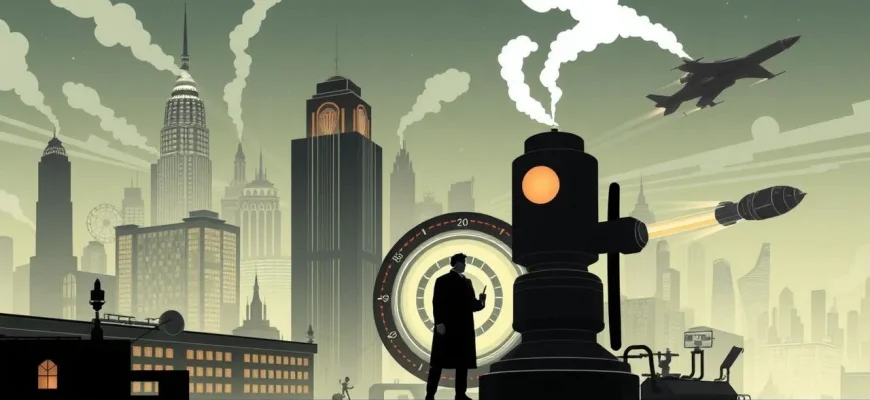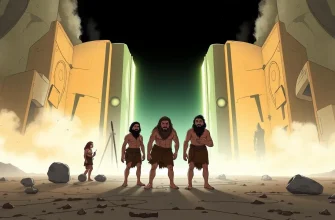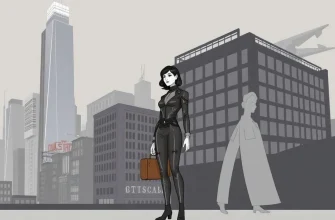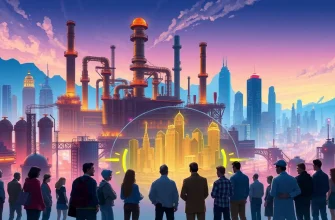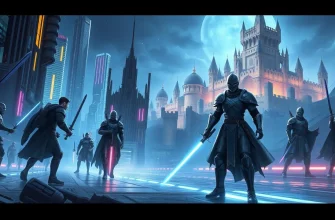This collection of films transports viewers to the early 20th century, a time when science fiction was just beginning to explore the possibilities of technology, time travel, and alternate histories. These movies not only entertain but also provide a fascinating look at how the past imagined the future, offering insights into the cultural and technological aspirations of the era.

The Lost World (1925)
Description: Based on Sir Arthur Conan Doyle's novel, this film features an expedition to a plateau in South America where prehistoric creatures still exist, capturing the early 20th-century's fascination with dinosaurs and lost worlds.
Fact: It was one of the first films to feature stop-motion animation to bring dinosaurs to life on screen.
 Watch Now
Watch Now 
Metropolis (1927)
Description: Fritz Lang's masterpiece depicts a futuristic city where the working class lives underground while the elite enjoy a utopian existence above. This film is included for its pioneering special effects and its vision of a dystopian future set in the 20th century.
Fact: The film was one of the most expensive of its time, costing around 5 million Reichsmarks. It influenced countless science fiction works, including Star Wars and Blade Runner.
 Watch Now
Watch Now 
Frankenstein (1931)
Description: While not strictly sci-fi, James Whale's adaptation of Mary Shelley's novel deals with themes of creation and science, fitting the early 20th-century's interest in the ethical implications of scientific advancement.
Fact: Boris Karloff's portrayal of the Monster was so iconic that it became the standard image of Frankenstein's Monster in popular culture.
 Watch Now
Watch Now 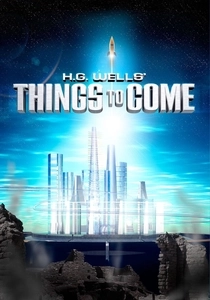
Things to Come (1936)
Description: Directed by William Cameron Menzies, this film imagines a future where humanity rebuilds after a devastating war, focusing on technological and societal advancements. It's a classic example of early 20th-century speculative fiction.
Fact: H.G. Wells wrote the screenplay, making it one of the first major films to be based on a novel by a science fiction author.
 Watch Now
Watch Now 
The Time Machine (1960)
Description: Based on H.G. Wells' novel, this film follows an inventor who travels through time to witness the future of humanity. Its inclusion in this list is due to its setting in the early 20th century and its exploration of time travel, a staple of early sci-fi.
Fact: The film's time machine prop was designed by Bill Ferrari and is now on display at the London Film Museum.
 Watch Now
Watch Now 
A Trip to the Moon (1902)
Description: Georges Méliès' silent film is one of the earliest science fiction movies, depicting a group of astronomers traveling to the moon. Its inclusion highlights the very beginnings of cinematic science fiction.
Fact: This film was one of the first to use special effects, including stop motion and double exposure.
 Watch Now
Watch Now 
The Phantom Empire (1935)
Description: A serial film that combines elements of science fiction with Western themes, set in a hidden underground city beneath a ranch in the early 20th century. Its inclusion showcases the blending of genres in early cinema.
Fact: Gene Autry, known as the "Singing Cowboy," stars in this film, marking one of his earliest roles.
 Watch Now
Watch Now 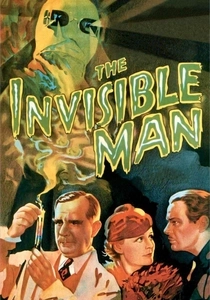
The Invisible Man (1933)
Description: Based on H.G. Wells' novel, this film explores the consequences of scientific experimentation gone awry, set in the early 20th century. It's included for its depiction of scientific hubris and its era's fascination with invisibility.
Fact: The film was one of the first to use a technique known as "traveling matte" to create the effect of invisibility.
 30 Days Free
30 Days Free 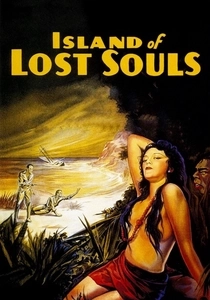
Island of Lost Souls (1932)
Description: This adaptation of H.G. Wells' "The Island of Doctor Moreau" delves into themes of evolution and genetic manipulation, set in the early 20th century, making it a fitting addition to this list.
Fact: The film was banned in several countries for its disturbing content, which was considered too graphic for the time.
 30 Days Free
30 Days Free 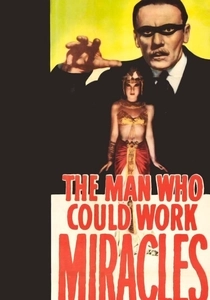
The Man Who Could Work Miracles (1936)
Description: This film, directed by Lothar Mendes, explores the idea of an ordinary man gaining the power to perform miracles, reflecting the era's fascination with the supernatural and the limits of human potential.
Fact: The film was produced by Alexander Korda, who was known for his interest in speculative fiction.
 30 Days Free
30 Days Free 
